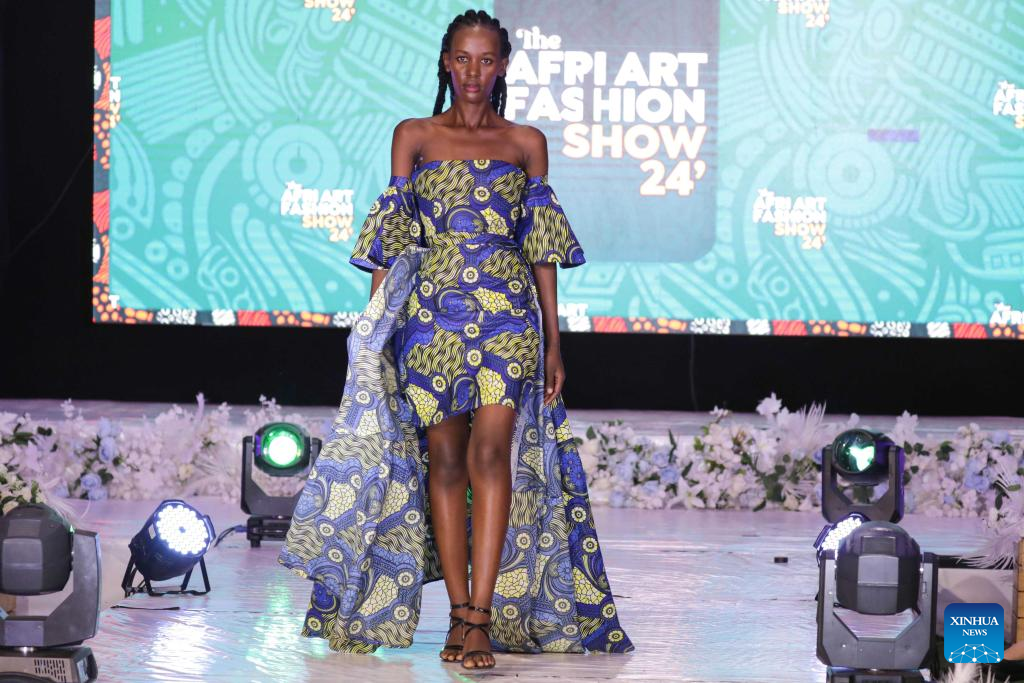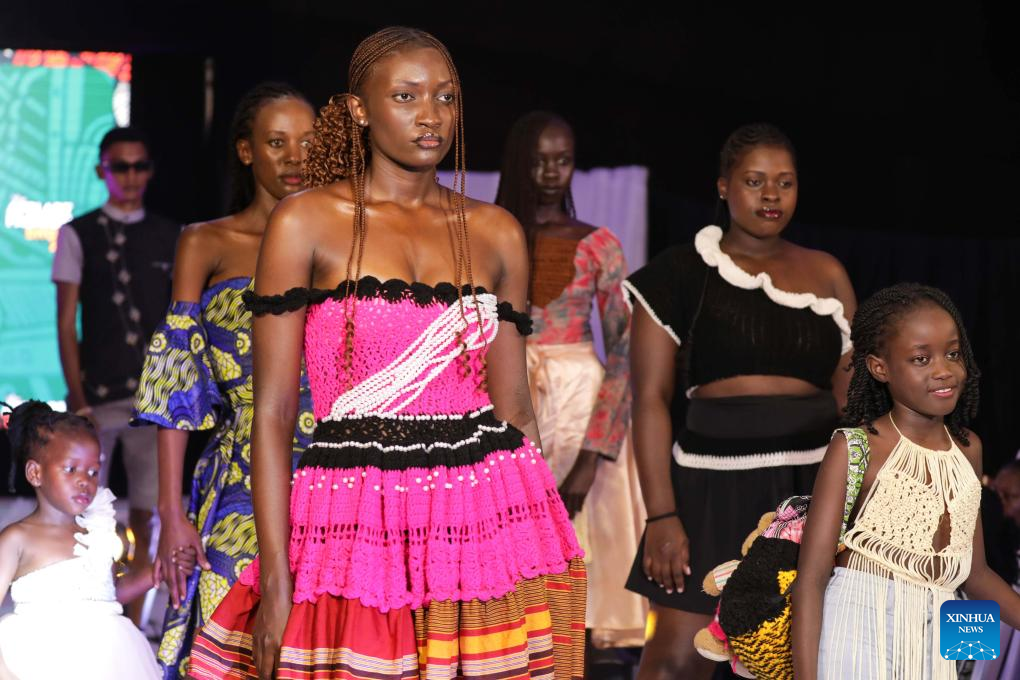
A model presents a creation during the Afri Art and Fashion Show 2024 in Kampala, Uganda, July 13, 2024.
The Afri Art and Fashion Show 2024 concluded here on Saturday, with more than 15 local artisans and designers showcasing African fashion works with traditional and modern elements, eye-catching to the public. (Photo by Hajarah Nalwadda/Xinhua)
KAMPALA, July 15 (Xinhua) -- The Afri Art and Fashion Show 2024 concluded here on Saturday, with more than 15 local artisans and designers showcasing African fashion works with traditional and modern elements, eye-catching to the public.
Themed "Celebrating Timeless Beauty," the annual event exhibited a diverse range of African-inspired apparel and accessories, crafted with locally sourced materials like cotton, bark cloth, banana fiber, sisal, and traditional kitenge.
According to Cerinah Kasirye, founder of Trillion Looks Store which is the organizer of the show, the platform is important for young talents to display their African designs while remaining relevant in modern times.
Kasirye said preserving the African heritage is essential in a world where people are looking for identity.
"Everyone needs identity; I have seen people in the African diaspora who are looking for identity. They are asking, who am I?" Kasirye said. "And for us, fashion is one of the ways that people can get their identity. People can relate to the fabrics and materials we use because they carry a rich heritage."
She said young fashion talents have become more creative by infusing traditional African fabrics like bark cloth with modern designs. Bark cloth is a century-old, locally sourced fabric that is made out of the bark of trees.
"Some people are actually picking old fabrics and used clothes to create new products. They are using these products to impact lives, to touch the environment," she said. "So in modern times, we are here to promote passion and also to be ethical and just to the environment."
Aisha Nabwanika, one of the exhibitors at the fashion show and also a pioneer in culture tourism, said Africa has a rich cultural heritage that can be promoted through fashion.
Citing the Baganda tribal group in central Uganda, which has different dress codes for various events, like parties or funerals, Nabwanika said these designs define who a group of people is and what drives them.
"Even up to today, it is still significant that as we are going for traditional functions, for example, introduction ceremonies, you find the Baganda women putting on the gomesi dresses, and men in kanzus (tunic)," she said. "It is still very significant to showcase our culture, but then also to showcase what we really believe in as a people."
Nabwanika said it is important for local fashion designers to be more creative in integrating traditional African designs with modern ones so that the young generation can appreciate them instead of completely adopting Western fashion designs.
Troniver Nabukenya, an artisan who makes bangles, bags, and necklaces out of African beads, urged young people to always appreciate their traditions and norms despite pressure from Western cultures. She said the young generation should have a sense of belonging even in modern times.
"I believe when we value what we have and what we are, it is the best. We are not going to put down our traditions and norms that are cultural, we are not," Nabukenya said, noting that young people should not prioritize what others are imposing on them. ■

Models pose for a photo during the Afri Art and Fashion Show 2024 in Kampala, Uganda, July 13, 2024.
The Afri Art and Fashion Show 2024 concluded here on Saturday, with more than 15 local artisans and designers showcasing African fashion works with traditional and modern elements, eye-catching to the public. (Photo by Hajarah Nalwadda/Xinhua)
